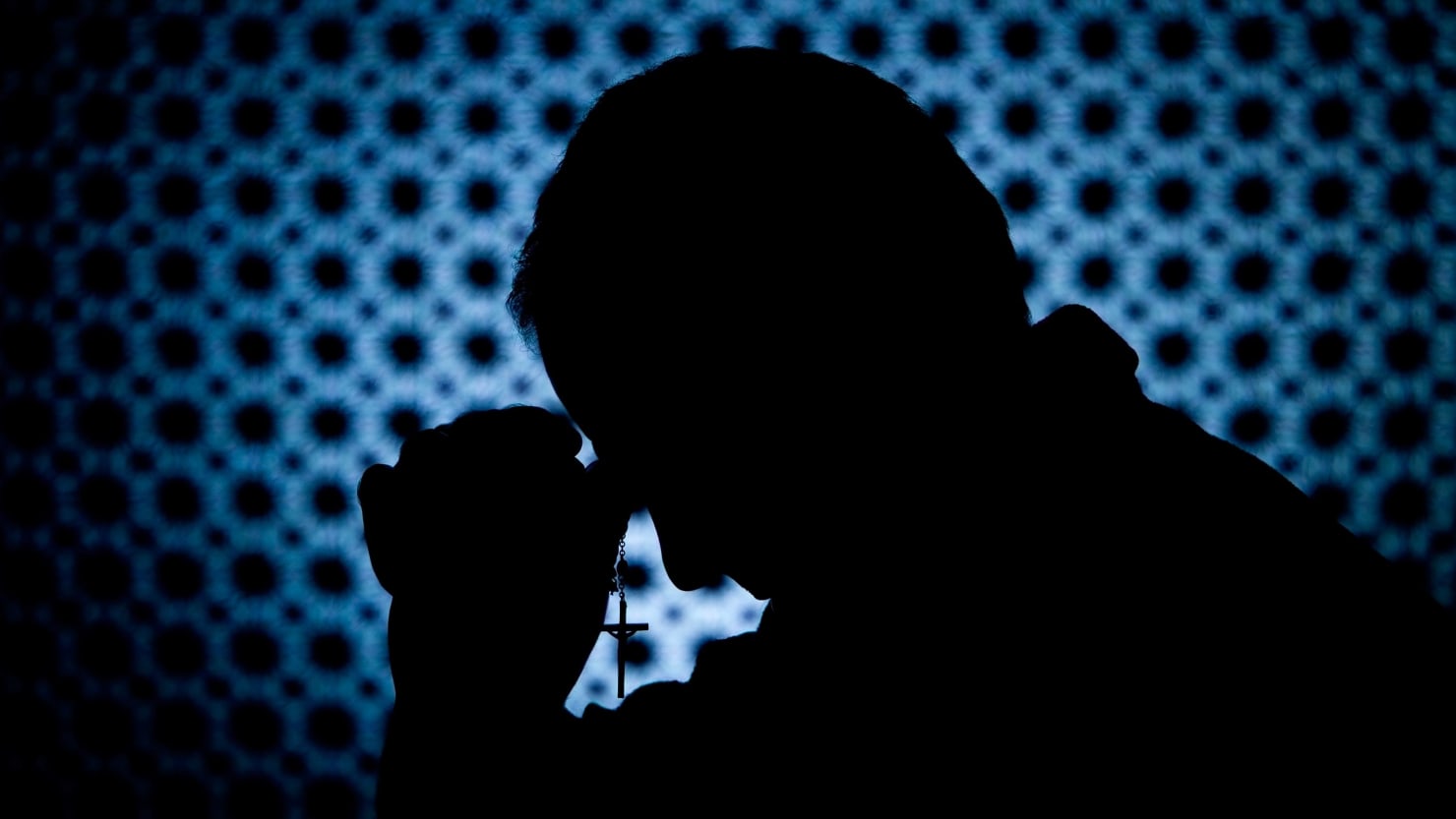[ad_1]
ROME – When Father Eric de Moulins-Beaufort, president of the Conference of Bishops of France, suggested that the Catholic Church lift the veil of secrecy on confessions as a means of combating sexual abuse committed this week, eyes turned are raised in the Vatican. The seal of secrecy on confessions is hundreds of years old and has survived all the great sexual abuse scandals of the modern era and dozens of popes intact – and any priest who violates it is automatically excommunicated from it. church.
A general view shows worshipers attending the Pope’s Easter Sunday Mass in front of St. Peter’s Basilica in St. Peter’s Square on April 21, 2019 in the Vatican.
Vincenzo Pinto / Getty
Moulins-Beaufort made the comment on the heels of one of the worst sexual abuse scandals to rock the church since Projector won an Oscar, with the revelation that thousands of Catholic nuns, priests and laity abused more than 300,000 minors over a period of 70 years. “The scale of violence and sexual assault against minors revealed by the report requires the church to review its practices in light of this reality,” he said in a radio interview. “We must therefore reconcile the nature of confession with the need to protect children. “
Less than a day after her remarks made waves, the spokeswoman for the French bishops clarified that they would in fact not seek to make any changes and that the seal of the confession was anyway “above the bishops. laws of the Republic “. “We cannot change canon law for France because it is international”, declared Karine Dalle to Catholic National Register. “A priest who today violates the secrecy of confession would be excommunicated.
Father Thomas Reese, American Jesuit priest and author of Inside the Vatican: the politics and organization of the Catholic Church, says lifting confession secrecy might actually make matters worse, as it would likely keep offenders of all kinds from the confessional – where they could instead be rehabilitated – lest they be exposed.
He assimilates the priestly role in the confessional to that of lawyer. “If an accused goes to a lawyer and says I committed this crime, then defend me, the lawyer doesn’t pick up the phone and call 911,” Reese told The Daily Beast. “Confession is not magic, it is not a no-get-out card, it is real life, and part of the confession is a firm goal of amendment.” By this, Reese says he means that by going to confession the devout Catholic must really mean that they will try to stop what they are confessing or that the priest does not absolve them and that, he says. , puts them in danger of going to hell if they die.
“They are delusional or are predators or sociopaths.“
He says that in many cases priests are able to offer counseling, get criminals who confess to the authorities, or get the deviant to stop the bad behavior. “I think the best argument for the seal of confession is that there will be people who will come to a priest to talk about something they have done and it gives the priest the opportunity to try to do them.” stop doing what they did. were doing, â€he says. “And the judgment is, it’s better for society as a whole than having these people totally isolated with no one they can go and talk to.”
In any case, it is not clear that lifting the veil of secrecy on the Catholic confession – which Pope Francis has said is sacred – would do much to stop the problem anyway, as real criminals do not confess and it is rare for victims to trust. a priest enough to use the confessional as a place to call for help.
Reese and other priests also agree that the real depraved would never go to confession anyway. “They are delusional or are predators or sociopaths,†he says of serial child molesters. “Are they going to go to confession?” No!”
He points out that most priests have no idea who is on the other side of the screen anyway, so it would be impossible to report a confession as such, even if they could.
It is rare for a victim of a priest to confess to report a crime, in part because he or she has likely lost confidence in the clergy by the very nature of the abuse they endure. If this happens, the priest’s moral obligation is to advise them either to report the abuse to the authorities or to inform the priest of the crime once they are out of the confessional. In this way, the priest has no obligation of secrecy, which only applies to the act of confession, and can on the contrary act on a moral obligation to help the victim. A victim can also waive their right to secrecy, but that does not mean that a priest could do the same. Several US states have charged priests with contempt of the law for not breaking vows if a case goes to court.
The secrets of the confessional do not stop at the sins of priests. Gangsters confessed to murders, thieves confessed to burglaries, and adulterers confessed to dating. The lifting of the seal of confession would change the very nature of the role of the Catholic priest in confession. Although, as Reese says, there is no data on the number of crimes confessed to priests since – at least so far – priests who hear confessions are forced by the church to take their secrets in the grave.
[ad_2]

